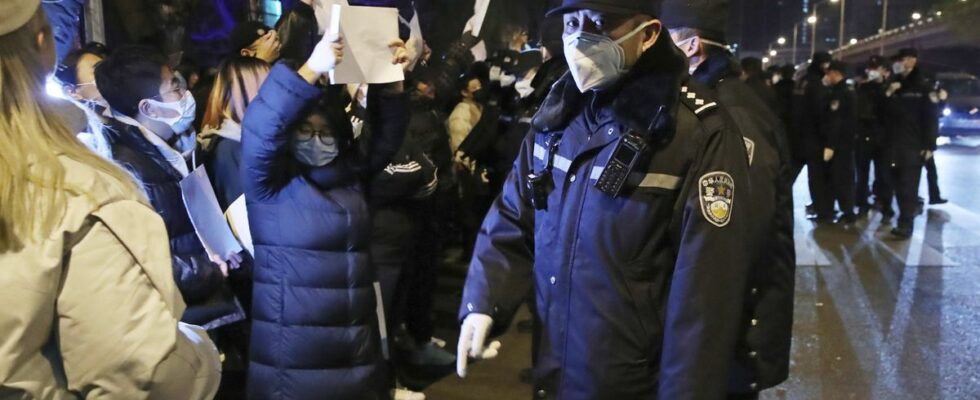In China, the authorities are trying by all means to stem the movement of anger. Demonstrators who protested on Sunday in Beijing against health restrictions and in favor of more freedoms say they were contacted by telephone by the police who questioned them about their presence at the rally.
The question arises as to how the police managed to discover the identity of certain demonstrators, when the vast majority of them did not have their identity documents checked during the rally at the end of the weekend.
An illegal demonstration
A protester said on Monday evening that she and five of her comrades, who also demonstrated in the capital on Sunday, received a call from Beijing police. The policeman “said my name and asked me if I had been to the Liangma River last night… He asked me specifically how many people were there, what time I was there, how I had heard of it,” said the protester, who requested anonymity for security reasons.
“The police pointed out that last night’s demonstration was illegal and asked if we had any demands that we would like to communicate to them through legal channels.” She said the police officer spoke to her in an “even tone” during that brief call, and instructed her not to attend future gatherings. In one case, the police would have moved to the home of her comrades because they refused to answer the phone, she said, adding that she would “do her best to continue” to demonstrate.
In Shanghai, an AFP reporter who witnessed several arrests found that police forcibly checked a protester’s phone for foreign social media apps, blocked in China and used by some to spread news on the demonstrations.
On Sunday, a crowd of demonstrators, responding to calls on social networks, took to the streets in particular in Beijing, Shanghai and Wuhan, catching the police off guard. By its extent on the territory, the mobilization seemed to be the most important since the pro-democracy rallies of 1989, harshly repressed.

